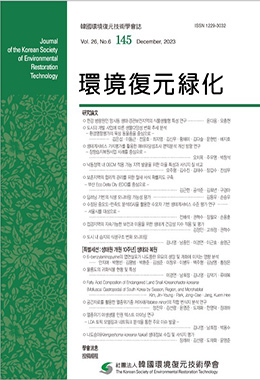This study assessed the ecological health of border areas using the ecological health index and suggested Indicators for maintaining and promoting ecological values. We analyzed the change trends, pressures, and resilience of ecosystems and services in border areas, and identified their current status and sustainability. The main findings were: (1) ecological assets and ecosystem services in border areas could be compared through ecosystem health assessment; (2) it can be used to set priorities for management and conservation by identifying the relative importance and vulnerability of ecosystems and ecosystem services in each border area; and (3) the index presented in this study can be judged to have explanatory power for the characteristics of border areas and ecosystem health when compared to previous studies. Limitations of this study include the lack of literature and statistical data at the local government level and the resulting limited application of evaluation methods, which limited direct regional comparisons. To overcome the research limitations, further studies are needed, such as establishing ecological information in border areas, mapping and assessment of ecosystem services, and developing and applying assessments that reflect the opinions and participation of various stakeholders. This study was the first attempt to assess the health of ecosystems and ecosystem services in border areas and provided an important baseline for future changes in border areas. In the future, it will be helpful in national and local government policies and ecological assetecosystem management by supplementing insufficient information and presenting clear goals.




